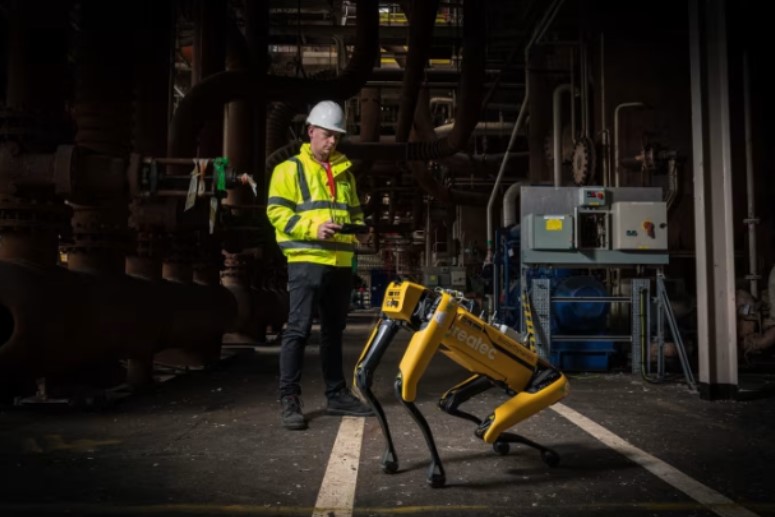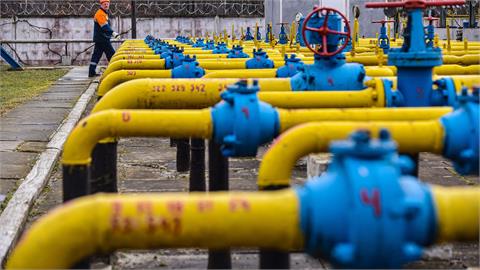by Nicholas Fearn Energy companies are increasingly leveraging artificial intelligence technology to improve the efficiency and sustainability of their operations. And it is already transforming critical functions: from lowering carbon emissions to mitigating cyber attacks and predicting mechanical failures
In the process, the technology is generating new job opportunities, for AI ethics specialists, software developers and data engineers across the sector. However, experts warn that AI could also displace more traditional energy jobs.
Use cases: emissions monitoring, infrastructure routing, supply management, cyber defence
With energy-related carbon dioxide emissions reaching 37.4bn tonnes for the first time last year — an increase of 410mn tonnes, or 1.1 per cent, on 2022 levels — many companies are exploring ways in which AI can help reduce their carbon footprint.
Shell, for example, has developed an AI tool for monitoring methane emissions. This “uses wind and concentration data to help us understand the origin and quantity released”, explains Dan Jeavons, vice-president of computational science and digital innovation at the oil and gas company.
AI will optimise the efficiency of energy systems by “reducing the amount of power needed to be generated”, he adds. It could also create “entirely new low carbon-footprint energy systems” and enable suppliers to monitor greenhouse gas sinks.
Gert Vermeiren, European managing director of environment, water and energy at global infrastructure consulting firm Aecom, says AI will improve the cost-effectiveness and accuracy of energy infrastructure. Engineers, for instance, working on pipelines and power lines could use AI to “generate a viable route shortlist in seconds” instead of several days.
In addition, AI offers operations engineers “a more strategic, whole-grid view of supply”, allowing them to analyse energy generation and usage patterns to “plan supply more efficiently” and balance the “use of different sources of low carbon generation in a dynamic environment”. He adds: “For the customer, this means supply is much more reliable.”
Energy asset managers can benefit from AI tools, making it possible to predict system failures and inspect and repair them accordingly. “This not only addresses productivity gains but safety as well,” says Vermeiren.
Scotland-based provider SSE has found AI-powered energy forecasting to be extremely useful. It is using technology to “forecast energy usage at the distribution system operator level” and analyse “future energy demand at a local level”, notes SSE Energy Solutions digital services director Eunice Mabey. It gives businesses “greater accuracy and certainty on their future energy demand and cost while enabling energy flexibility”.
The company is also using AI for optimising large energy generation systems in the healthcare and academic sectors. “It [AI] analyses past energy performance and operation to produce optimised running schedules to lower energy costs and carbon emissions,” Mabey explains.
Mona Schroedel, a managing associate at UK law firm Freeths, says AI-powered algorithms could streamline energy trading research — by “surveying enormous swaths of information and detecting patterns and anomalies”. She suggests the technology could help energy companies monitor and detect cyber security threats, as well, which are increasing in scale and sophistication.
Amanda Ahl, grids and utilities associate at the energy transition research body Bloomberg NEF, expects AI to “play a larger role in grid design and planning”. Ahl says this “accounted for 7 per cent of AI activities in the power sector in 2023”.
Jobs created: systems modellers, ethics officers, cyber security experts
As energy companies continue integrating AI into day-to-day operations, many will require staff with the data science and AI development skills to create “the next generation of predictive models”, according to Dr Augustine Ikpehai, senior lecturer in electrical and electronic systems at Sheffield Hallam University.
Muhammad Wakil Shahzad, assistant professor in Northumbria University’s mechanical and construction engineering department, agrees that system modeller engineers will be in demand. Companies will need people who can apply AI and computational modelling to “simulate and optimise complex energy and end-use systems”, he says, as well as data analysts who can “extract insights to optimise energy production, distribution and consumption”.
But, to ensure AI algorithms are not used for the wrong reasons, energy companies must appoint AI ethics officers, too, argues Derreck Van Gelderen, AI energy lead at management consultancy PA Consulting. He says their job will be to ensure “AI systems are designed and used in a fair, transparent and responsible manner”.
Cyber security professionals will also play a bigger role in keeping future energy infrastructure safe from rising online threats, according to Kumar Parakala, president of digital transformation specialists GHD Digital: “As bad actors become more sophisticated in their attacks on critical infrastructure, including the energy sector, the demand for cyber security skills will increase in a bid to be one step ahead in knowledge, skills and approach.”
Jobs lost: inspection and maintenance staff
While the rise of AI-powered energy systems and infrastructure will generate new jobs, this could come at the cost of more traditional roles. Ikpehai expects AI to displace low-skilled energy jobs, in particular.
Energy companies could, for example, use drones and computer vision systems for manually inspecting transmission lines and pipes. However, humans will still need to check and review the results generated by such systems, he adds.
Traditional inspection and maintenance roles that expose people to hazardous working environments should be automated, says Van Gelderen. He points out that the Sellafield nuclear waste management plant in Cumbria is using an AI-powered robot to keep its operators “out of harm’s way”.
But it is likely the petroleum sector will suffer most from AI-related job losses, says Parakala. In this area, mechanical work is “being replaced by robotics and AI automation”.
More generally, AI will automate repetitive maintenance tasks in areas such as energy plant operations and tasks conducted by junior supervisors, according to Tom Fairbairn, distinguished engineer at real-time data platform Solace. But, he adds, energy workers affected by these job losses could upskill in areas “where human judgment, creativity, and problem-solving skills are irreplaceable”.
(Financial Times/Special Report Future of AI, Special Report Artificial intelligence - March 26, 2024)




